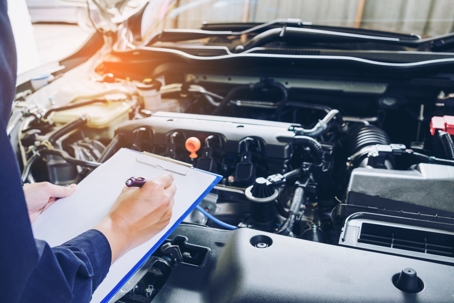Since January 1, 2025, most non-commercial vehicles in Texas no longer require annual safety inspections to complete registration. This change, passed under House Bill 3297 during the 88th Legislative Session, significantly alters how the state oversees vehicle safety. But while inspections are gone, the legal duty to maintain a safe vehicle remains unchanged.
At the Law Offices Of Vic Feazell, P.C., we want Texas drivers and those injured in auto accidents to understand the implications of this new law. Less oversight can mean more unsafe vehicles on the road, but those who fail to properly maintain their vehicles can still be held accountable when their negligence causes harm
What Has Changed: Understanding House Bill 3297
Under HB 3297, Texas eliminated mandatory safety inspections for non-commercial vehicles starting in 2025. While drivers will no longer need to pass a safety check before registering their vehicles, a $7.50 inspection program replacement fee will be added to annual vehicle registration costs.
Here’s a quick breakdown of what’s changing:
- Safety inspections will no longer be required for non-commercial vehicles statewide.
- A $7.50 replacement fee will be added to registration (or $16.75 for new vehicles covering a two-year period).
- Emissions tests are still required in designated counties (e.g., Harris, Dallas, Travis, El Paso, etc.).
- Commercial vehicles will still be subject to annual safety inspections and will not pay the replacement fee.
The Texas Department of Motor Vehicles (TxDMV) will continue to handle all vehicle registrations.
Why the Change Raises Safety Concerns
Vehicle safety inspections were never a cure-all, but they did provide a basic checkpoint to catch potentially dangerous issues before cars hit the road. Without this safeguard, Texas is poised to see more vehicles in circulation with undetected mechanical problems, including:
- Worn or bald tires, which can blow out at high speeds or lose traction in rain.
- Brake failures, which are especially dangerous in traffic, intersections, or school zones.
- Non-functioning headlights, brake lights, or turn signals, reducing visibility and increasing the risk of rear-end collisions.
- Defective steering or suspension, which can make a vehicle difficult or impossible to control.
- Loose or unsecured trailers, posing dangers to others when parts fall or detach.
Without routine inspections, some of these issues may go unnoticed or ignored by drivers until it’s too late.
Unsafe Vehicle Conditions Can Still Create Legal Liability
One key takeaway: just because Texas is ending safety inspections doesn’t mean drivers are off the hook legally.
Under Texas law, vehicle owners and operators still have a duty to keep their vehicles in reasonably safe condition. That means if someone knowingly (or negligently) drives a vehicle with bad brakes, worn-out tires, or another dangerous defect, and causes an accident, they can be held civilly liable for the resulting injuries or deaths.
Potential liability scenarios include:
- A tire blowout causes the vehicle to swerve and hit another car.
- Faulty brake pads prevent a driver from stopping in time.
- A trailer detaches on the highway and collides with a following vehicle.
- A commercial or rideshare vehicle fails to pass internal inspections and later causes a crash.
In these situations, the absence of a state inspection does not excuse negligent maintenance. Drivers and businesses can be, and often are, held financially responsible for putting others at risk.
Victims Still Have Legal Rights After Accidents Involving Unsafe Vehicles
If you’re injured in a crash caused by a vehicle that should not have been on the road, you may have the right to file a personal injury claim—even if the at-fault driver’s car was technically "registered" under the new system.
In these cases, our legal team can:
- Investigate vehicle conditions, service records, and driver awareness of safety issues.
- Work with mechanical experts and accident reconstructionists to determine causation.
- Identify insurance policies or commercial entities (such as delivery fleets or rideshare companies) that may be financially liable.
- Handle negotiations or litigation to seek full and fair compensation.
Don’t assume that just because inspections are no longer required, your case is weakened. The law still protects victims of negligence, and that includes negligent vehicle maintenance.
What Drivers Should Do to Stay Safe
Whether or not you agree with the state’s decision, the risk of being involved in a wreck caused by someone else’s poorly maintained vehicle may increase. Now more than ever, it’s critical to:
- Stay vigilant: Watch for vehicles driving erratically, with visible defects, or poorly maintained parts.
- Maintain your own vehicle: Even in the absence of state inspections, schedule regular maintenance at a trusted shop.
- Document everything: If you’re in a crash, preserve photos and videos of the scene, including the condition of the other vehicle.
- Consult a lawyer early if you suspect a vehicle defect contributed to the crash.
We Help Victims Injured by Negligent Drivers and Unsafe Vehicles
At the Law Offices Of Vic Feazell, P.C., our trial-tested legal team has decades of experience helping Texans injured in car and truck accidents. We understand how to investigate claims involving poor vehicle maintenance and how to hold all responsible parties accountable—whether that means the vehicle owner, a business, a mechanic, or a manufacturer.
When you work with us, we fight to uncover the truth, pursue full compensation, and protect your rights at every stage.
Inspections May Be Gone But Accountability Isn’t
Texas may have eliminated vehicle safety inspections, but the obligation to keep vehicles roadworthy still exists. If you or someone you love is injured by a dangerous or poorly maintained vehicle, you have legal options.
Call (254) 938-6885 or contact us online to schedule a free, no-obligation consultation.

